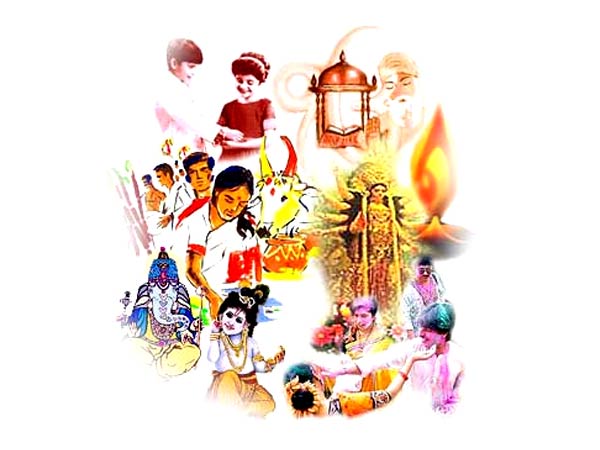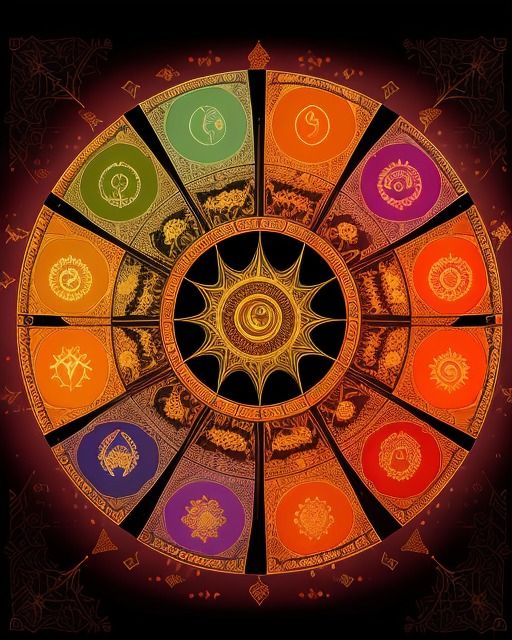Hindu Holidays: History, Facts, FAQs, and Their Life-Changing Significance
Hinduism is one of the oldest living religions in the world, rich with festivals and celebrations that mark spiritual, seasonal, and historical events. Hindu holidays, also known as Utsavs, are not only moments of joy and devotion but also reflections of Indian culture, human behavior, and societal harmony. Understanding these holidays goes beyond knowing their dates—it helps us connect to traditions, values, and the rhythm of life itself.
- History of Hindu Holidays
- Fascinating Facts About Hindu Holidays
- Timeline of Major Hindu Holidays
- Significance of Hindu Holidays
- Hindu Holidays and Daily Life
- Frequently Asked Questions (FAQs) About Hindu Holidays
- Wishing During Hindu Holidays
- Important Points to Remember
- Conclusion: The Life-Changing Power of Hindu Holidays
History of Hindu Holidays
The history of Hindu holidays dates back thousands of years, intertwined with the ancient Vedic texts, epics like the Mahabharata and Ramayana, and the teachings of sages and saints. Most festivals were historically celebrated to mark important agricultural cycles, celestial events, and spiritual milestones:
Diwali celebrates the victory of light over darkness, good over evil, and knowledge over ignorance. Its roots trace back to the return of Lord Rama to Ayodhya after defeating Ravana.
Holi is the festival of colors and the triumph of good over evil, inspired by the story of Holika and Prahlad.
Navratri and Durga Puja honor Goddess Durga, symbolizing power, protection, and feminine energy.
Makar Sankranti marks the transition of the sun into Capricorn, signifying the harvest season and spiritual enlightenment.
These festivals were originally seasonal markers for agrarian societies but evolved into spiritual and cultural celebrations that bind communities.
Fascinating Facts About Hindu Holidays
India celebrates over 30 major Hindu festivals across the year, each with regional variations.
Many Hindu festivals follow the lunar calendar, making their dates shift slightly each year.
Some holidays, like Raksha Bandhan, highlight human relationships, while others, like Maha Shivratri, emphasize meditation and spirituality.
Hindu holidays often involve specific rituals, traditional foods, and community gatherings.
The celebrations combine joy with philosophy, teaching moral values and life lessons.
Timeline of Major Hindu Holidays
Here’s a brief timeline for some key festivals:
| Festival | Month (Gregorian Calendar) | Significance |
|---|---|---|
| Makar Sankranti | January | Harvest, Sun worship |
| Maha Shivratri | February/March | Devotion to Lord Shiva |
| Holi | March | Victory of good over evil, spring celebration |
| Rama Navami | March/April | Birth of Lord Rama |
| Hanuman Jayanti | March/April | Birth of Lord Hanuman |
| Raksha Bandhan | August | Strengthening sibling bonds |
| Krishna Janmashtami | August | Birth of Lord Krishna |
| Ganesh Chaturthi | August/September | Birth of Lord Ganesha |
| Navratri/Durga Puja | September/October | Worship of Goddess Durga |
| Diwali | October/November | Triumph of light and prosperity |
| Guru Nanak Jayanti (also celebrated in Hindu communities) | November | Guru teachings |
| Kartik Purnima | November | Devotion to Lord Vishnu and saints |
Significance of Hindu Holidays
Hindu holidays hold multi-dimensional significance:
Spiritual Significance: They encourage introspection, prayer, and the pursuit of knowledge and virtue. For example, Diwali promotes inner light and positivity.
Cultural Significance: They preserve ancient traditions, classical arts, dances, and music. Navratri showcases traditional dance forms like Garba and Dandiya.
Social Significance: Festivals bring families and communities together, strengthen bonds, and encourage social harmony.
Psychological Significance: Celebrations create joy, reduce stress, and foster emotional well-being. Colors of Holi and lights of Diwali boost mood and happiness.
Economic Significance: Festivals drive commerce, crafts, local businesses, and tourism. Markets come alive with decorations, sweets, and gifts.
Hindu Holidays and Daily Life
Hindu holidays significantly impact daily life in India and among Hindu communities worldwide:
Rituals and Practices: People fast, pray, decorate homes, and perform pujas, instilling discipline and devotion.
Family and Social Interaction: Festivals strengthen family bonds, friendships, and community ties.
Learning and Reflection: Stories of gods, goddesses, and heroes teach morality, courage, and ethical behavior.
Charity and Kindness: Festivals like Diwali and Makar Sankranti encourage donations, feeding the poor, and helping others.
Cultural Continuity: Passing down traditions from one generation to the next ensures cultural preservation.
Frequently Asked Questions (FAQs) About Hindu Holidays
Q1: Why do Hindu festival dates change every year?
A1: Most Hindu festivals follow the lunar calendar, so dates vary in the Gregorian calendar.
Q2: Are Hindu holidays only religious?
A2: No. While they have religious origins, many festivals emphasize cultural, social, and seasonal significance.
Q3: Which is the most widely celebrated Hindu festival?
A3: Diwali is arguably the most globally recognized Hindu festival, celebrated with lights, prayers, and fireworks.
Q4: Do Hindus fast during holidays?
A4: Yes, fasting is common during certain festivals like Navratri, Maha Shivratri, and Ekadashi. It symbolizes self-discipline and purification.
Q5: How do Hindu holidays impact society?
A5: They encourage social cohesion, promote charitable actions, support economic activity, and preserve culture and ethics.
Wishing During Hindu Holidays
Wishing someone during Hindu festivals is a reflection of goodwill, positivity, and connection. Common wishes include:
“May this Diwali bring light and happiness to your life!”
“Wishing you a colorful and joyful Holi!”
“May Goddess Durga bless you with strength and prosperity!”
“May Lord Krishna’s blessings be with you always on Janmashtami.”
These wishes express love, respect, and spiritual goodwill, reinforcing human relationships.
Important Points to Remember
Hindu holidays often integrate mythology, astronomy, and seasonal cycles.
Festivals teach values, courage, and compassion through stories and rituals.
Celebrations involve community participation, making them social as well as spiritual events.
Preparation and rituals are as significant as the celebrations themselves, fostering discipline and mindfulness.
Modern Hindu holidays often blend traditional and contemporary practices, making them accessible to younger generations.
Conclusion: The Life-Changing Power of Hindu Holidays
Hindu holidays are more than just dates on a calendar—they are inspirational life guides. They shape human behavior, enrich culture, enhance social bonds, and encourage spiritual growth. Observing these holidays teaches us lessons about morality, gratitude, and harmony with nature and society. Whether it’s the joy of Holi, the light of Diwali, or the devotion of Maha Shivratri, these celebrations empower individuals and communities, reminding us of the timeless connection between humans, divinity, and the universe.
Celebrating Hindu holidays is a human-centric experience—an opportunity to pause, reflect, and infuse life with meaning, positivity, and togetherness. They show how ancient traditions remain relevant, transformative, and deeply connected to modern life, making every festival a celebration of life, learning, and love.
 |
And there is the religious bit lurking behind it all. The reasons for this lie deep, in the origin of Hinduism as an organic religion. Its followers have over time considered anything, animate or inanimate, to be sacred and aspects of divinity.
That is also why even secular events like harvests take on religious overtones, with the patron deity presiding over the festivities. As soon as something happens, there is a kind of thanksgiving to the divine that follows it.
Apart from the universally celebrated festivals like Dussehra, Diwali and Ganesh Chaturthi, there are others that are observed in specific communities or geographical areas. Hindu holidays are also confined to particular regions by the importance a certain god enjoys.
Worship of Kartikeya (as during the festival of Skanda Shashti) is predominant in Tamil Nadu, where the god is considered a patron of the region. Onam is a good example of a festival that is celebrated solely by Keralites. Another interesting aspect of Onam is that it is perhaps the only major Hindu festival that celebrates the reign of an asura king, although a benevolent one.
The profusion of legends and the contradictions inherent in them is reflected in festivals too. Travel around the country, and you will hear people tell you a variety of legends involving different gods behind a single festival. Besides, you will also find versions of the same festival being celebrated under different names in different regions.
All this adds that facet of unending novelty and constant change to the strikingly colorful kaleidoscope that is India. You might end up thinking the thought: “The more things change, the more they remain the same”, which is something often said about India and its magical agelessness.
With so many holy days and more than 20 major Hindu festivals, the calendar should be liberally sprinkled with them. But it isn’t so. There is a distinct festival season, which runs from late August through December. This is when there is a fever of celebrations, with a string of important festivals following one another in a rush.
But the major festivals are not the only ones that the people celebrate. Browse through the Hindu almanac, and you will find a mention of holiness or sacredness against almost every day of the year. Most of the lesser festivals are lesser because they have a private rather than public face. There are rituals for phases of the moon, solar and lunar eclipses, days of the week, a person’s auspicious star or zodiac sign.
| Hindu Festivals Calendar 2025 | |||||||||||||||||||||||||||||||||||||||||||||||||||||||||||||||||||||||||||||||||||||||||||||||||||||||||||||||||||||||||||||||||||||||||||||||||||||||||||||||||||||||||||||||||||||||||||
🗓️ 2025 Hindu Festivals Calendar
| |||||||||||||||||||||||||||||||||||||||||||||||||||||||||||||||||||||||||||||||||||||||||||||||||||||||||||||||||||||||||||||||||||||||||||||||||||||||||||||||||||||||||||||||||||||||||||









Hi, Neat post. There is a problem together with your site in web explorer, could test this… IE still is the market chief and a large section of folks will leave out your wonderful writing due to this problem.